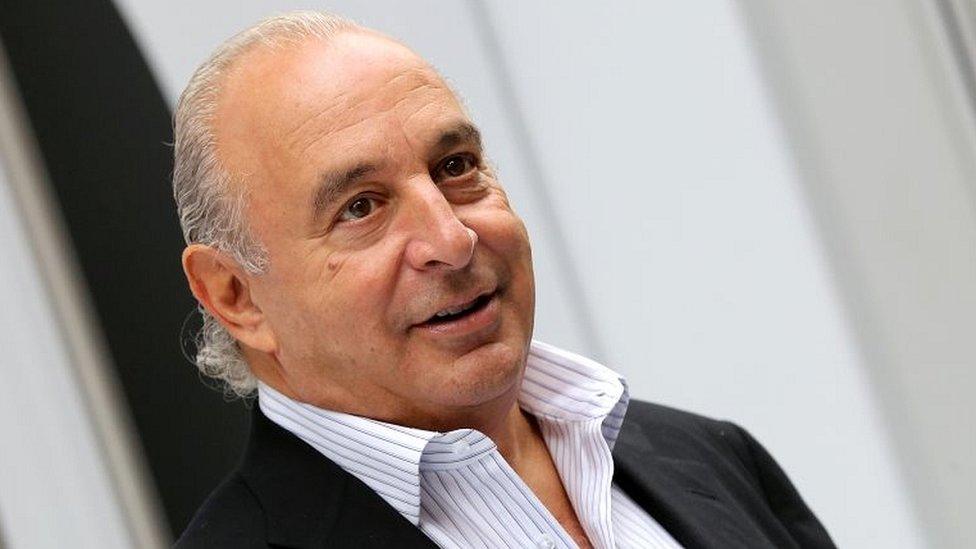What are non-disclosure agreements?
- Published

Sir Philip Green denies allegations of sexual harassment and racist behaviour
Topshop boss Sir Philip Green has dropped his legal action against the Daily Telegraph, which prevented it publishing allegations of racist behaviour and sexual harassment. He had argued that former staff were breaking the law by breaching non-disclosure agreements (NDAs) they had signed. So how do these work?
What are NDAs?
Sometimes known as "gagging orders" or "hush agreements". In employment law, they're parts of contracts, or sometimes standalone contracts, between employees and companies. They typically prevent staff and ex-staff making information public. In legal practice they are often described as "confidentiality clauses", but are better known to the public as NDAs.
They can apply to commercially sensitive details such as inventions and ideas, or anything likely to damage an organisation's reputation.
NDAs have also been used to prevent employees discussing allegations of misbehaviour in the workplace in the media after a settlement has been agreed.
They're signed when employees and organisations resolve a dispute - such as a claim of wrongful dismissal - without going through a full tribunal hearing. But they can be signed earlier, such as when staff are taken on.
What do they cover?
NDAs don't stop people reporting alleged illegal acts. If a manager or colleague faced allegations of attempted rape or fraud, for instance, reporting these to the police would not be prevented.
But allegations of a boss making sexual comments or bullying staff could be covered. However, bullying may be illegal if it relates to "a protected characteristic", such as age, disability, race, religion or sexual orientation, says Marc Jones, a partner at IBB Solicitors.
The length of time for which an NDA applies varies.
How many are there?
In the US, it's thought that a third of workers, external have signed NDAs but, according to Mr Jones, it's "impossible to say" how widespread they are in the UK.
Julie Morris, a senior employment partner at Slater and Gordon Lawyers, says that, in her experience, "almost all settlement agreements" contain NDAs preventing employees "speaking about various matters, including allegations about harassment or discrimination".
How are they enforced?
If someone breaches an NDA, they break a contract, leaving them open to being sued.
But if a company thinks the NDA is going to be breached, it can apply for an injunction, as Sir Philip did to prevent his name being circulated by the Daily Telegraph in connection with allegations of racial and sexual harassment.
If someone breaches an injunction, this is a criminal offence, and can lead to a fine or jail for those found guilty.
Can injunctions be overcome?
Yes. Parliamentary privilege - guaranteeing free speech for parliamentarians - allows MPs and peers to mention them in the House of Commons or House of Lords.
Last October, former Labour cabinet minister Lord Hain used this to name Sir Philip as the businessman accused by the Daily Telegraph of sexual and racial harassment, after the newspaper was prevented by the injunction from doing this.
Sir Philip says he's "not guilty of unlawful sexual or racist behaviour" and he has been the subject of "vicious" and "untrue" personal attacks in the media.